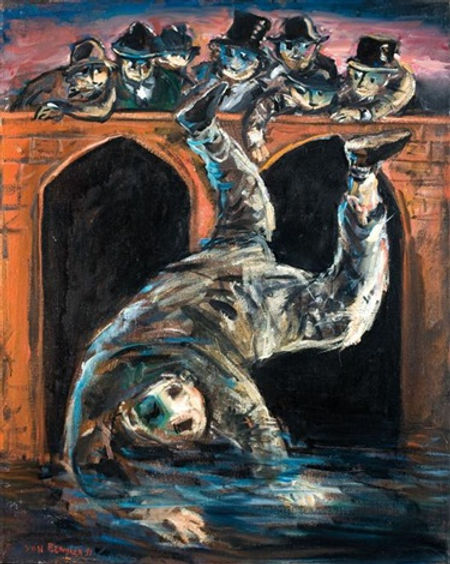Although I pride myself time and time again on being Czech novelist, Franz Kafka’s, number one advocate, I found it unusually difficult to digest Kafkas 1912 short story, “The Judgment.” My struggle may boil down to my lack of reading as of late, however, understanding “The Judgment” is undoubtedly unfeasible without obtaining background knowledge on Kafka’s additional stories, his relationships, as well as Kafka himself.
I found “The Judgement” to be much easier to appreciate following reading Kafkas own letter to his father, which was made public in 1966, 42 years subsequent to his death. In his 45 page dedication to his father, readers gain an insight on who Kafka was as a person, son and why his diction as well as stories are incredibly unique. “The Judgement,” in particular, using the first quarter to be the ramblings and inner thoughts of merchant, Georg Bendemann, after announcing his engagement in a letter to his friend residing in St. Petersburg, Russia.
Throughout the duration of the short story, Bendemann juggles in his mind whether or not his friend made the correct decision in reinstituting his life in St. Petersburg. Considering the downfall of his friend’s business as well as his appearance which resembles that of one who is diseased, Bendemann struggles to determine if telling his friend to move back is the morally ‘right’ thing to do. Afterall, Bendemann emphasizes, “…could one expect that he would make a success of life back here?”
Kafka’s letter to his father predominates towards the end of “The Judgment” as Bendemann exchanges dialogue with his father, who accuses him of being selfish and untruthful about the existence of his friend in St. Petersburg. Much like what readers learned about Kafka’s father through his letter, Bendemanns father is ungrateful and unappreciative of all that his son does for him.
“I have only one request, ‘The Stoker,’ ‘The Metamorphosis’… and ‘The Judgement’ belong together, both inwardly and outwardly,” Kafka wrote to his publisher, thus birthing “The Sons,” which includes his letter to his fathers well. While I’ve yet to complete ‘The Stoker,’ the connection between all previously mentioned stories is eminent — specifically in relation to themes of judgment, as well as the line between good and evil.
Overall, after gaining the much needed background knowledge, “The Judgment” was no different from any other Kafka piece; completely captivating, wildly interesting, and slightly confusing.
—



































